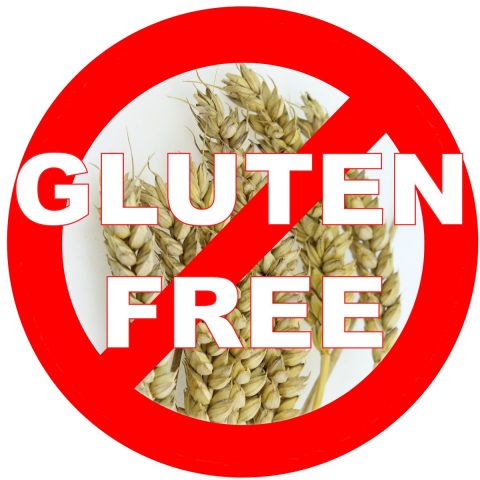Raise your hand if you’re one of the 18% of Americans who buy products labeled “gluten free.” Gluten free bread, gluten free cookies, gluten free pizza, gluten free grape juice, gluten free beef jerky, and the list goes on. But what’s the deal with this gluten stuff? What is it? Is it unhealthy? And what’s all this hype about gluten intolerance and sensitivity? How does a person know if he has it? And where did this idea of gluten intolerance/sensitivity originate anyway?
Gluten is a combination of proteins found in wheat, rye, and other grains that gives the foods their shape and holds them together. It can be found in all types of breads, pasta, cereal, in addition to unexpected places like salad dressings and food coloring. Gluten free products are those which would normally have some traces of gluten but have been produced without it (generally causing the final product to taste pretty bad, if we’re honest).
Gluten intolerance/sensitivity is a condition that causes a person to have symptoms ranging from gastrointestinal problems to joint pain to fatigue and depression after ingesting gluten. There are no currently accepted medical procedures to diagnose the condition. Those who have been diagnosed with celiac disease after blood tests and/or endoscopy will actually have an immune response to gluten in the body. This ultimately damages the small intestine and can restrict nutrients from reaching all parts of the body. One percent of Americans are estimated to have celiac disease. (Please note that for the rest of this article, all references to “gluten intolerance/sensitivity” do not include those with celiac disease, rather those individuals who have or have not been diagnosed with gluten intolerance/sensitivity only).
Gluten intolerance/sensitivity has only been acknowledged within the past five years. That is due to one Australian scientist and one study performed in 2011 that was looking to “determine whether gluten ingestion can induce symptoms in non-celiac individuals and to examine the mechanism.” The scientist found that subjects who ate gluten had slightly worse symptoms than those who didn’t consume any gluten. But, he concluded that the evidence wasn’t significant enough to blame gluten for the gluten-consuming subjects’ bloating and other symptoms.
Despite the scientist’s findings, the following five years produced a $15 BILLION industry in selling gluten-free products based on that ONE study.
What is not commonly know is that same scientist, Peter Gibson, wasn’t satisfied with his findings. He performed two follow up studies over the next few years to check his work. These studies included self-diagnosed gluten intolerant/sensitive individuals. In those studies, Gibson found “absolutely no specific response to gluten.”
To date, there is still no scientific evidence that gluten intolerance/sensitivity is a real thing. There are a number of theories that exist as to why individuals experience some of the symptoms they do when consuming products containing gluten, but gluten itself may not be the culprit.
So is gluten unhealthy? No, not according to research. Should you buy gluten free? If it makes you feel better, maybe. But remember to always consult your doctor about medical conditions rather than relying on self-diagnosis.
Besides, cookies with gluten taste better anyway.

Comments are closed.